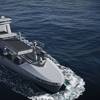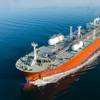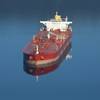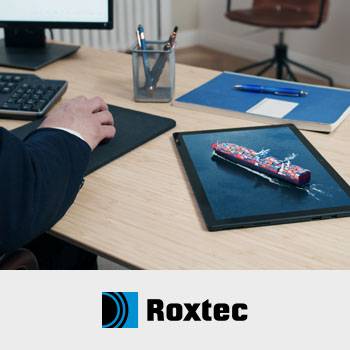Important maritime industry discussions between shipowners, shipbuilders and classification societies concluded in Shanghai on November 9 with agreement on the need to maintain the debate with a view to ensuring safe and robust designs for the future and to enhance the quality of new ships.
The discussions, coordinated by the Round Table of maritime associations - BIMCO, ICS, INTERCARGO and INTERTANKO - and under the chairmanship of the INTERCARGO Chairman, Frederick Chavalit Tsao, continued an initial discussion held in February this year in Singapore. Delegates attending by invitation discussed their mutual interest in ensuring that ships were fit for purpose, the commercial realities in their respective market places and the interaction of their respective business concerns.
The discussions concentrated primarily on three major issues :
Building quality ships - shipbuilding standards
The meeting recognized the desirability of encouraging the construction of ships that were more robust, safe and environmentally-friendly although this may in some circumstances result in higher costs. Acknowledging that increased margins would provide greater longevity, strength and reliability, it was stressed that the objective of ships that were "fit for purpose" would only be met if higher standards are introduced uniformly. Additionally, these increased safety margins would compensate for the occasional human error in surveying. By ensuring universal implementation, owners, builders and classification societies would benefit from a common approach and avoid standards being driven down by competing interests within the respective industries. The critical and fundamental role of class in setting base level design standards was acknowledged, as well as the fact that owners often requested additional design margins in their specifications for new ships. However, improving the quality requires more than addressing the design itself. Equally important is the quality of the work with regards to the welding, the coating application and the installation of the equipment. The meeting agreed that the owners' organizations should develop this subject in further discussions with IACS, including continued consultation with representatives of the builders.
Contractual relationships
The important issue of shipbuilding contracts and the relationship between the owner, the builder and the classification society in the context of building quality ships was extensively discussed. In particular, it was acknowledged that while the builder must not be expected to disclose commercially confidential information, the owner had a right to be kept fully appraised of relevant developments in the design and construction of his ship, especially matters which were germane to its future operation. At the same time, the classification society must retain its professional independence.
Issues identified for further debate included the possibility of the classification society contracting with the owner rather than the yard during the construction phase, and the extension of the guarantee period. On this latter point, the meeting felt that longer warranty periods for critical design features and equipment could contribute to the quality of newbuildings by providing the yard with in-service feedback.
Shipyard capacity, research and information flow
Shipbuilders and shipowners have a common interest in avoiding excess supply capacity in their respective industries. Too many ships depress freight rates; too many shipyards push down shipbuilding prices to mutually unproductive levels. The critical importance of accurate information on shipyard capacity and demand forecasts for new tonnage, and the accessibility of that information to all relevant parties was stressed. Poor information and poor analysis contribute to less than optimal decision-making and it was agreed that discussions would continue to develop an improved information base as a matter of priority.
The meeting agreed that the tripartite debate and the discussions of the above issues together with others identified during the meeting, would continue at all levels for the promotion of improved quality ships.
Tsao, commenting on the success of the meeting said :
"All parties represented, acknowledged the value of discussing and sharing common concerns to promote higher quality ships and we have established a sound foundation for continuing this tripartite debate of industry leaders from shipbuilding, shipowning and classification society interests. The significance of this meeting taking place in Asia has been well noted by the various organizations which attended these discussions."
The representatives of the Round Table of maritime associations confirmed that they "appreciated the openness and sincerity of the discussions and were greatly encouraged that there was the will among all those present to expand upon the issues raised at this and the previous meeting."
Sponsored Content
LR - Fit for 55: Managing compliance and optimising operations

Use Roxtec seals, services and software

Subscribe for
Maritime Reporter E-News
Maritime Reporter E-News is the maritime industry's largest circulation and most authoritative ENews Service, delivered to your Email five times per week









